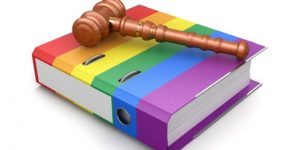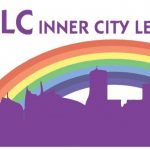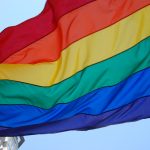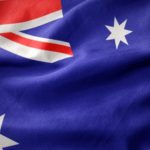South Australia Set to Overturn Discriminatory Laws

South Australia was the first state in the country to decriminalise homosexuality under Labor premier Don Dunstan on September 17, 1975.
However, the state has lagged behind the rest of the nation in recent years when it comes to laws that discriminate against a person based on their sexuality or gender identity.
The premier’s apology
This coming Thursday, South Australian premier Jay Weatherill is set to apologise to the state’s LGBTIQ community for past discriminatory laws.
The apology is being delivered as a suite of new bills seeking to remove discrimination are being debated in the upper house.
“I want to let the South Australian LGBTIQ community know that I am sorry for the discrimination within the state’s laws that they have experienced in the past,” Mr Weatherill said in a press release.
South Australian governor Hieu Van Le revealed the premier’s promise to review these laws during his speech at the opening of parliament in February 2015.
If passed by the upper house, a series of four amendment bills will provide greater rights to the state’s sexual and gender diverse community. The bills were passed in the House of Assembly two weeks ago.
The bills before parliament
The Births, Deaths and Marriages Registration (Gender Identity) Amendment Bill 2016 aims to make it easier for a person to change the gender on their birth certificates.
It would remove the requirement for a transgender person to have gender reassignment surgery before making the change. Instead, a person would have to consult a medical professional for a psychological assessment.
The bill was previously voted down in the lower house, in September this year.
The Relationships Register Bill 2016 allows unmarried couples, including LGBTIQ couples – as well as LGBTIQ couples who were married overseas – to have their relationships formally recognised. This will make it easier for them to access entitlements and assert legal rights.
The Statutes Amendment (Surrogacy Eligibility) Bill allows a person to access reproductive treatment if they are unlikely to become pregnant without the use of IVF treatment. It also amends the Family Relationships Act 1975 to allow lawful surrogacy agreements to LGBTIQ couples.
And under changes to the Adoption Act, LGBTIQ couples will be given the right to adopt a child if they live in a relationship that is deemed a “qualifying relationship.”
South Australian Greens MLC Tammy Franks said that while she welcomes the premier’s apology, it’s premature. She believes it should be made after the full law reforms have been guaranteed.
“We’re debating four different bills in the upper house,” she told Sydney Criminal Lawyers®. “I’m hoping the bills will have passed the parliament, but they probably won’t have.”
The South Australian Law Reform Institute review
South Australian attorney-general John Rau asked the South Australian Law Reform Institute (SALRI), in January 2015 to inquire into state laws that discriminate on the basis of sexual orientation, gender identity, or gender or intersex status.
Following that review, the institute released several reports leading to the formulation of the bills currently being debated before parliament.
One of those reports, released in September last year, identified more than 140 pieces of South Australian legislation that discriminate on the grounds of sexual orientation and gender identity.
This led to the Statutes Amendment (Gender Identity and Equity) Bill 2016 being passed in August this year. The bill changed the language used in South Australian law to remove gender bias and ensure that all gender identities – including transgender and intersex – are represented in the state legislation.
But according to Ms Franks, this bill is window dressing. “It just simply created some new rules about how we described some people in our laws,” the SA Greens spokesperson for gender and sexuality said. “But it certainly didn’t give them the entitlement or the expectation of further human rights.”
Gay panic defence
Ms Franks also pointed out that the state will not be making “any reforms at all on the gay panic defence.”
Gay panic defence is a provocation defence. It means that an unwanted sexual advance made by someone of the same sex can amount to a partial defence by an accused murderer. It can potentially reduce a charge of murder to manslaughter.
South Australia and Queensland are the only jurisdictions to still recognise the defence. Ms Franks introduced a private members’ bill before parliament in May this year to abolish the defence.
“It’s been twice to the legislative review committee and that’s recommended that we look at the suite of provocation defences,” Ms Franks explained, adding that they were waiting for the Lindsay case to be settled before moving ahead with the review.
Michael Lindsay claimed he was provoked into killing Andrew Negre, as Mr Negre had made repeated advances towards him. A jury found Lindsay guilty of murder in 2013.
However, the High Court of Australia overturned the conviction and ordered a retrial, as the original trial judge suggested to the jury that the gay panic defence should no longer be used.
On September 2 of this year, Lindsay was sentenced to life imprisonment after being found guilty of murder after the retrial.
World AIDS day
Mr Weatherill’s apology is expected to be made on December 1, which coincides with World AIDS day. Ms Franks pointed out that ironically, the state has “some of the most retrograde treatment policies around HIV/AIDS in the country.”
“It’s the first World AIDS day where we won’t have a voice for the HIV community,” said Ms Franks. She went explained that this is because the Positive Living Centre that supported gay men living with HIV/AIDS has been defunded over recent years.
On November 30, Ms Franks will be calling a vote for a PrEP trial to be rolled out in South Australia. PrEP or pre-exposure prophylaxis is a HIV prevention treatment that uses antiretroviral drugs to protect HIV-negative people from infection.
Currently, there are PrEP trials taking placie in Victoria, NSW and Queensland.
“The premier can’t look the gay community in the face for this apology if we haven’t actually acted to ensure their health into the future,” Ms Franks concluded.
Receive all of our articles weekly
Author

Paul Gregoire






